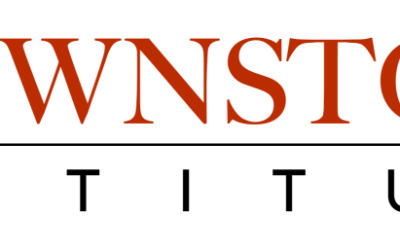
In January 1995, the Wall Street Journal ran an editorial entitled “Bankrupt Canada?” It warned our country flirted with economic ruin (a la the Mexican peso crisis) because of our profligate spending, chronic deficits, and lack of fiscal and monetary policy coordination. The Journal’s shot across our policy bow helped firm up support for action by the political class and by the Bank of Canada.
Fourteen years later, and in the midst of a recession, it is encouraging to see how our progress has been noted, this time by another American publication.
In the February 17 edition of Newsweek, foreign affairs editor Fareed Zakaria praises Canada’s virtues. He begins with a comparison of the banking system, where he notes that unlike the U.S. where several dozen banks went under in the past year, Canada has seen no bank failures.
As to why our banking system looks healthier, Zakaria points out American banks are leveraged at a 26-to1 ratio; here, the equivalent figure is 18-to-1. Europe’s banks—prepare to gasp—are leveraged 61-to-1. The European figure perhaps explains why the Royal Bank of Scotland just lost a whopping $50 billion in 2008.
On other measurements, in contrast to his own country, Zakaria notes Canada’s public pension system is on surer footing. In the United States, revenues from pension deductions are pooled into the larger pot of money spent annually by the U.S. federal government; ours is separated from the federal government’s annual books and managed at arms-length with an eye to actuarial tables that project necessary pension payouts into the future. The difference is all the difference in the world: the American government has a huge looming pension liability; the Canadian version is pre-funded.
There are aspects of the Newsweek analysis Canadians should quibble with; Zakaria’s flattery shouldn’t blind us to the reality of hard policy lifting which yet needs to be accomplished. For example, Zakaria looks north and sees a country that spends just 9.7 per cent of GDP on health care and provides universal access; the United States spends 15.2 per cent and doesn’t.
Zakaria calls our health care version “cheaper.” Actually, “cheap” is a better description. Spending less doesn’t always mean spending smarter. Delay oil changes or repairs to your automobile and the later needed engine replacement will reveal the initial “cheaper” approach as penny-wise and pound-foolish.
The reality is that both the U.S. and Canadian systems have their flaws and neither is “universal.” Here, we cheat the principle of universality by forcing patients onto waiting lists where they suffer and in some cases die. In addition, we cheat doctors by under-paying them for their time and skills. Both the U.S. and Canada could learn from Europe where every country has a better mix of private and public health care and where patients get better access as a result.
Other aspects of the Zakaria essay that need qualification include his praise of our real estate market. He notes, properly, that Canada’s housing market experienced less of a bubble because mortgage interest is not deductible here the way it is in the U.S. That, along with sub-prime foolishness tempted too many Americans to gorge on houses they really couldn’t afford. But we had similar temptations thanks to our own government-owned lending agent, the Canada Mortgage and Housing Corporation, which started to approve 40-year mortgages before the federal Conservatives shut down the practice.
As for the housing bubble, hold the champagne in at least some regions. Robert Shiller, the U.S. economist responsible for the Case Shiller Index on housing prices, and who predicted the U.S. housing bubble burst long before it did, was asked last year about Canada’s real estate market. He noted it was not as over-inflated in general as the American market. But Shiller did specifically point to Vancouver and Calgary as more similar to the U.S. pattern.
Rather major quibbles like that aside, along with my own concern that federal and provincial government are about to again bust the taxpayer bank with their deficits, Zakaria is correct to note the sensible policies implemented since the last time an American publication deigned to look up north.
Perhaps we’ll one day be seen as the North American version of Switzerland: conservative, civilized, prudent, and stable. When other nations are dealing with severe economic dislocation, such characteristics are rather desirable.


